For author-turned-executive-producer Victoria Schwab, it was high time for a change in genre storytelling.
"We have had crumbs," she tells The Advocate. "We have had crumbs, and we have had subtext. And we've had queerbaiting. And we've had tragedy porn where it never ends well, the bury your gays -- all of it." But enough was enough for Schwab, who set about writing something she always wanted and needed to see.
"I grew up with Buffy and with Supernatural, I grew up eating those crumbs. But I wanted to be in those stories. And yet, I was told -- and I was told via media -- for so long that you don't exist in those stories. Or if you do, it ends badly, she says. "And so what I really wanted to do was create a space in the genre for two girls to have a queer love story." Her resulting short story would become the basis for Netflix's new queer vampire drama, First Kill.
The series, which premieres on the streaming service this Friday, follows the complicated love story of Juliet and Calliope who develop an instant connection when the latter moves to town. There's only one kind-of-big problem: Juliet (Sarah Catherine Hook) is a vampire who comes from a long aristocratic line of sanguisuges and Calliope (Imani Lewis) is a vampire hunter whose family legacy is to track down the undead and monsters in all their forms.
It's a classic star-crossed lover's tale with a supernatural twist; one that lends it to telling a uniquely progressive story about love, family, empathy, and generational trauma. It's also one that puts a unique spin on the role that queerness plays in culture, specifically that there's nothing wrong or to hide about it -- exactly as Schwab intended.
"This is the thing, stories need conflict. So there's always power dynamics, there's always taboos," explains Schwab. "It's simply that in this story, by creating the taboo being its vampire and monster hunter, what we're seeing is that the queerness is normal. That's not the taboo element. So we displace the taboo element, which is a thing that was intentional from the beginning because I knew there has to be something, but it's not going to be [queerness]."

"I know representation is super important to both of us," Hook tells The Advocate. "And that was something that [Lewis and I] both really loved about this story is that their queerness was not a point of conflict for them here. And it was something that was accepted and never questioned, and it was celebrated. And we just hope that queer audiences will see themselves through these characters."
Both Hook and Lewis fell in love with their roles immediately, simply because they were both such complex and fleshed-out characters. For Lewis, it was the opportunity to take on an action role that initially caught her eye.
"I've been wanting a role like that for so long, where I could really show my agility and stuff like that," she recalls to The Advocate. "But then, when I learned about the character and about the story, and about her family's dynamic and the war between the two families. It was hard not to fall in love with this story and want to see it through, I think, selfishly. I wanted to see it through and see how they come out of this clean. Do they come out of this clean?"

For Hook, the draw was a deep connection with who Juliet is at her core. "I have to be Juliet. I need this role," she remembers thinking when she read for the part. "I'm so thankful and honored to have it. And also the representation aspect of the show really was so special and unique. There's really not a show like this. How could you not want to be a part of it?"
The complexity of these characters comes down to Schwab's dedication to making more than just a love story, or just a vampire story, but one about self-actualization and the influence family has on us all.
"So often [in stories like this] the family element is not there. And really, it's about family in multiple ways. I wanted there to be parents, older siblings, and our leads. The reason being that when we're looking to our role models when we're growing up, the parents teach us how to be a certain way. And the older siblings enforce that," Schwab shares.
"And so really, what I wanted to do was create a dynamic where our two girls are at the point in their life, that crucial age that yes, it's about first love and everything, but it's also about the moment when you realize that your identity, which has been a familial identity for your entire life with family indoctrination, good and bad."
One of the major themes First Kill explores is the tension of realizing that perhaps your family's dreams for you are not your own, and how far you would go for your family. It's certainly a theme that will resonate with many queer and straight folks alike.

It's already connecting with an audience.
Hook recalls when the announcement went out and the response she got on social media. "People have been going nuts," she laughs. "Once the announcement was made people were freaking out... but since the trailer came out, people have been losing it, making 'Calliet' pages. It's really, really amazing. I'm like, oh my God. So cool. You haven't even seen it yet. Hope, we live up to it."
Lewis agrees. "The outpouring of love has been so amazing," she gushes.
What fans are likely picking up on is the easy chemistry between the series leads, something that came naturally, Lewis recalls. "It's a very organic dynamic, and I think that's what you got. That's what you all will see on camera," she says, noting that the two made an instant connection.
"I mean, it was like it was, it's honestly not even fair," Hook adds. "It just happened so beautifully. The first time that we really got to speak as Sarah Catherine and Imani, we had like a four-hour FaceTime and just noticed so many different similarities that we had with one another."
This was helpful when the two were on set playing lovers. "We really made sure that the other one was comfortable -- and especially with the more intimate scenes. We're just really there for one another, wanting to make sure that each other felt safe," Hook shares.

It was a dream collaboration for all involved, including Schwab, who still can't quite believe it's happening. "I'm what I call a popcorn optimist, which is to say that I'll believe a thing is getting made when I can sit down with a bucket of popcorn and watch it myself," she jokes. "I was the one member of our [executive producing] team that didn't believe the show was happening. Like I was on set and I still was like, 'Well, if the show comes out.'"
The moment that made it finally start to feel real came when she was on set in the office of Sebastian Fairmont, Juliet's father. "There were business journal posters on the wall with him on the cover. And I just thought, 'I made this dude up on like, a Tuesday... just a random Tuesday in my life, I made a person who is now a person.' I don't know why I just think it's the coolest thing," she recalls.
Along with Sebastian Farimont and his business journal covers, Schwab has created and manifested a world where queerness abounds, vampires walk the earth and fall in love, and there is, deep down, a hope that even the widest and deepest divisions can be bridged with empathy.
It's a world that so many people need to see, especially queer youth. It's a responsibility that both leads feel in the lead-up to the premiere.
"I would only hope that the audience is able to see their own challenges and their own conflicts and struggles that they face in their own lives, but are inspired to power through it and are inspired to go through those changes and stand strong in their truth and who they are and what rings true and real to them," says Lewis. "You have to know yourself and take the time to be gentle and learn and love yourself."
"I also just I think the queer community just deserves a show [like this, where queer love] is normal and celebrated," shares Hook. "I just really hope that queer audiences see themselves in these characters and feel seen."
First Kill premieres June 10 on Netflix. Watch the trailer below.
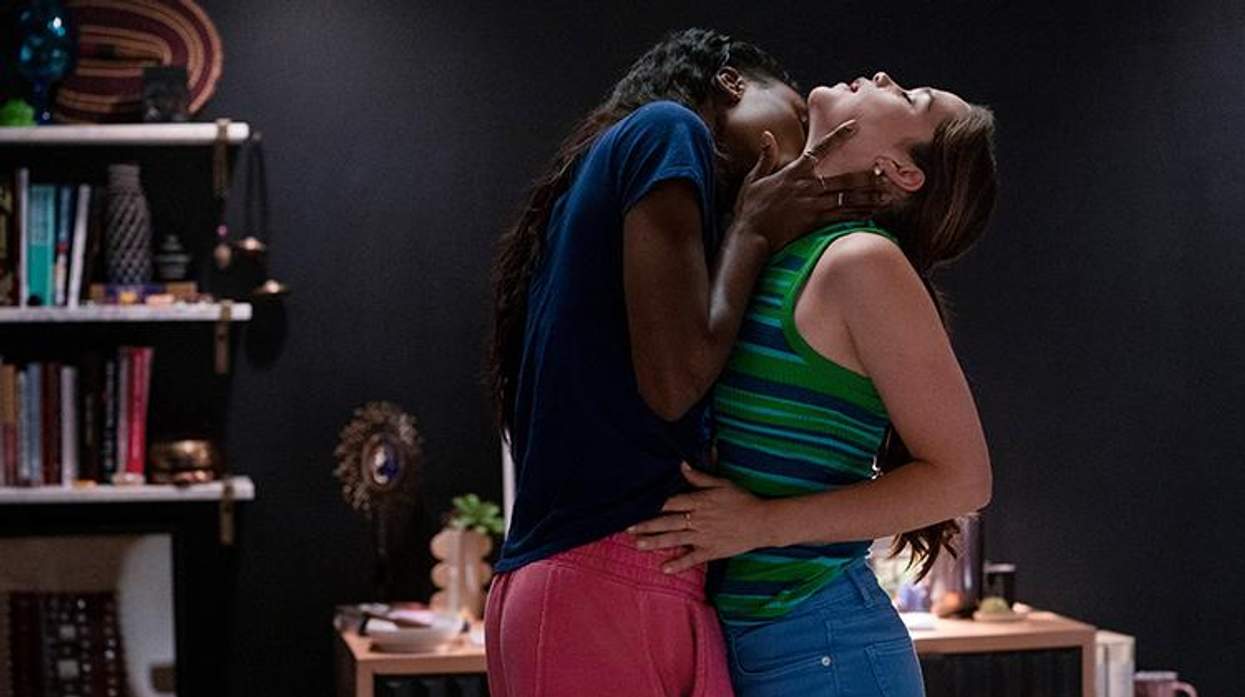

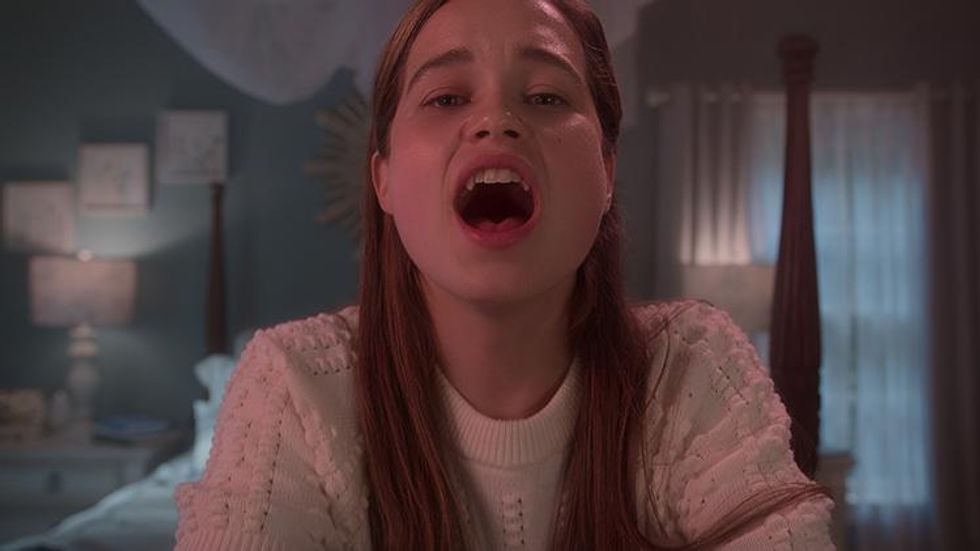
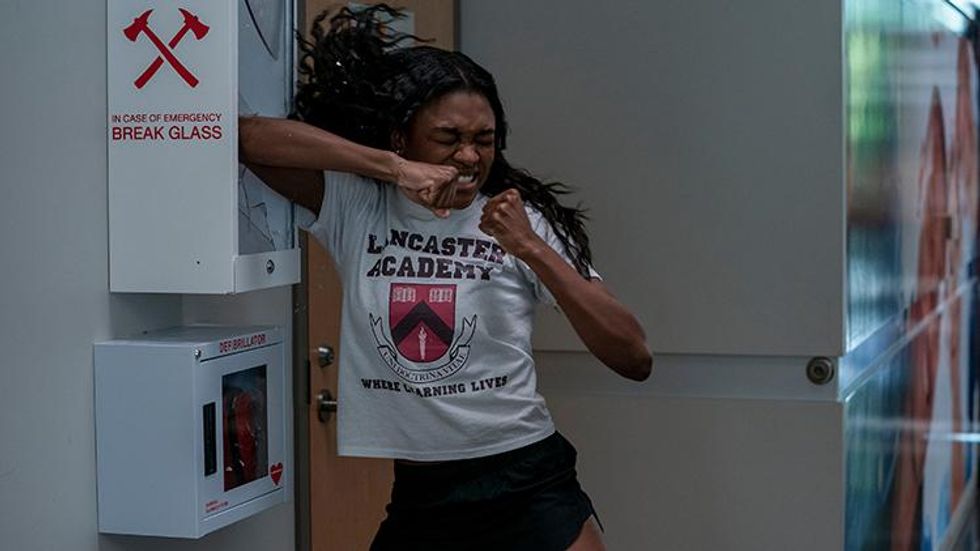
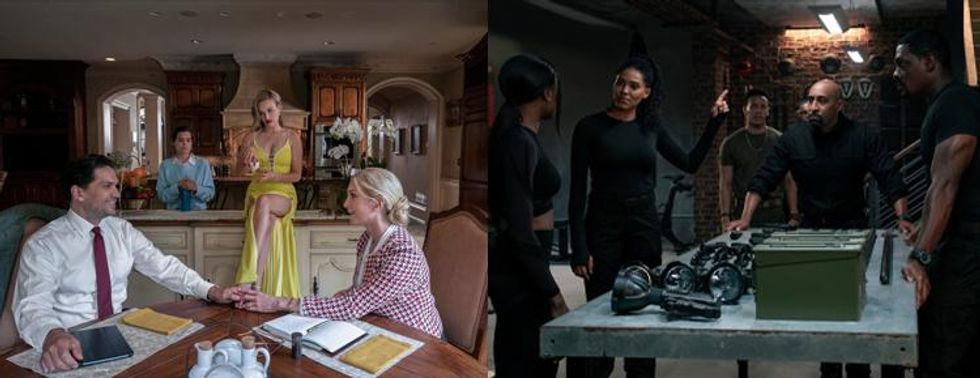
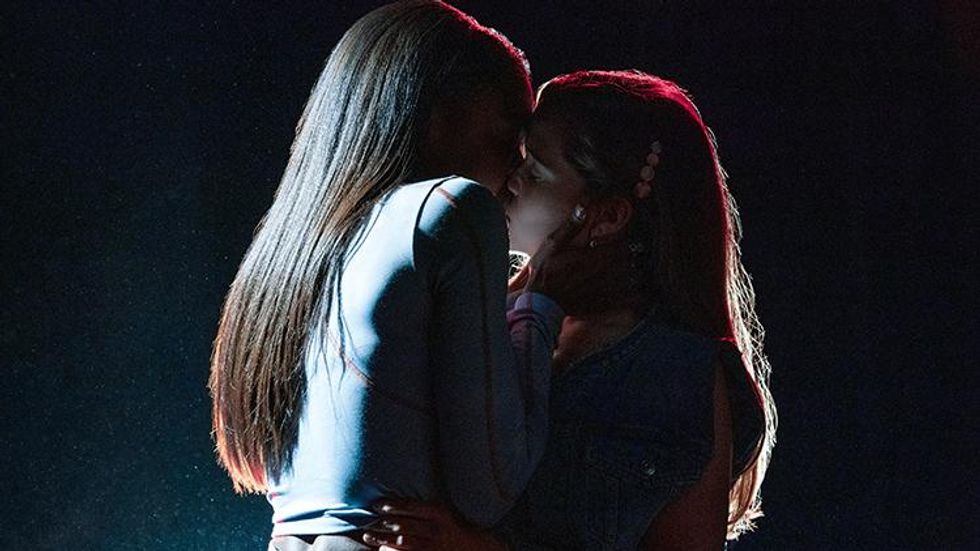


































































Charlie Kirk DID say stoning gay people was the 'perfect law' — and these other heinous quotes